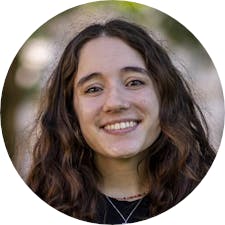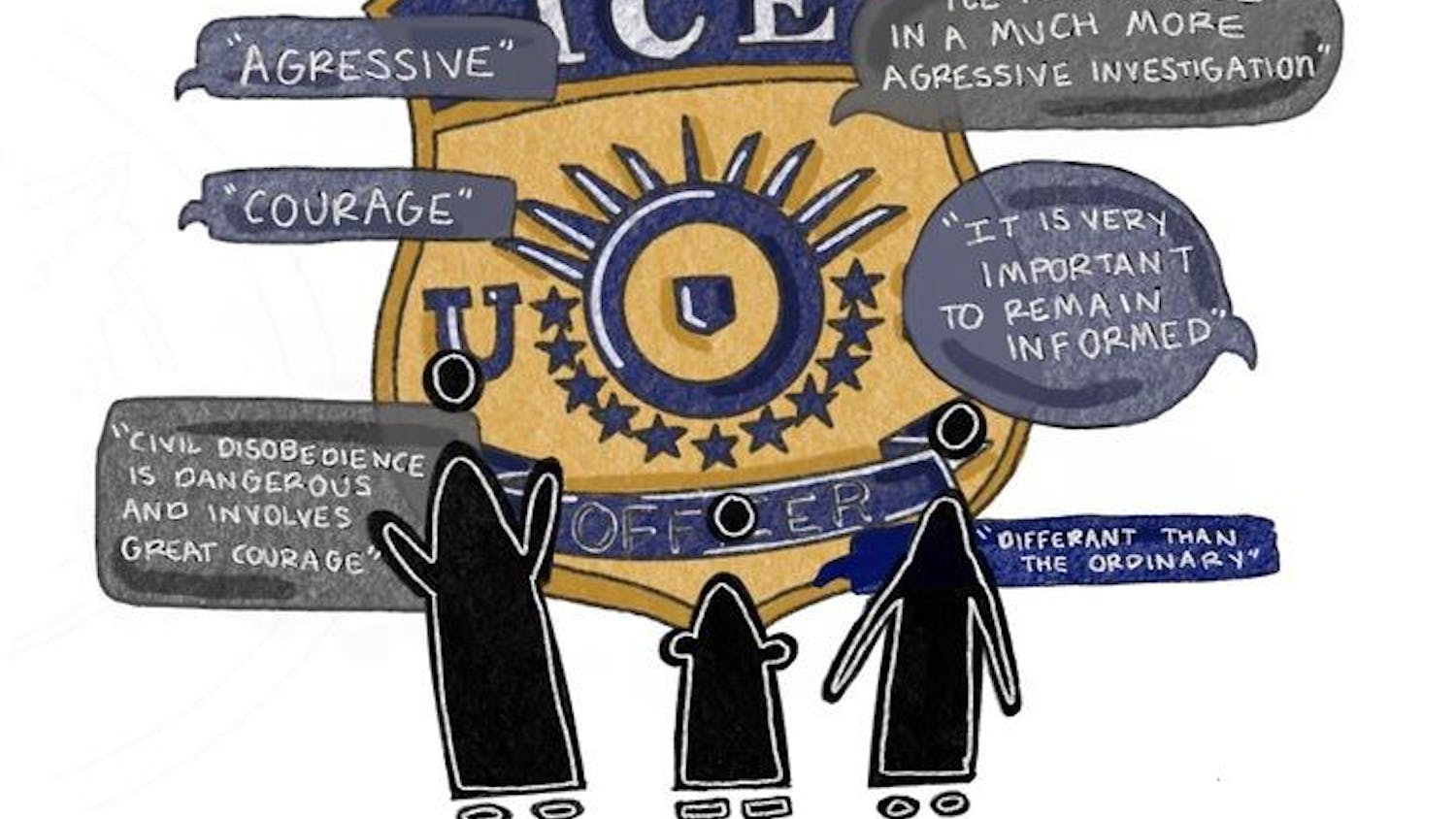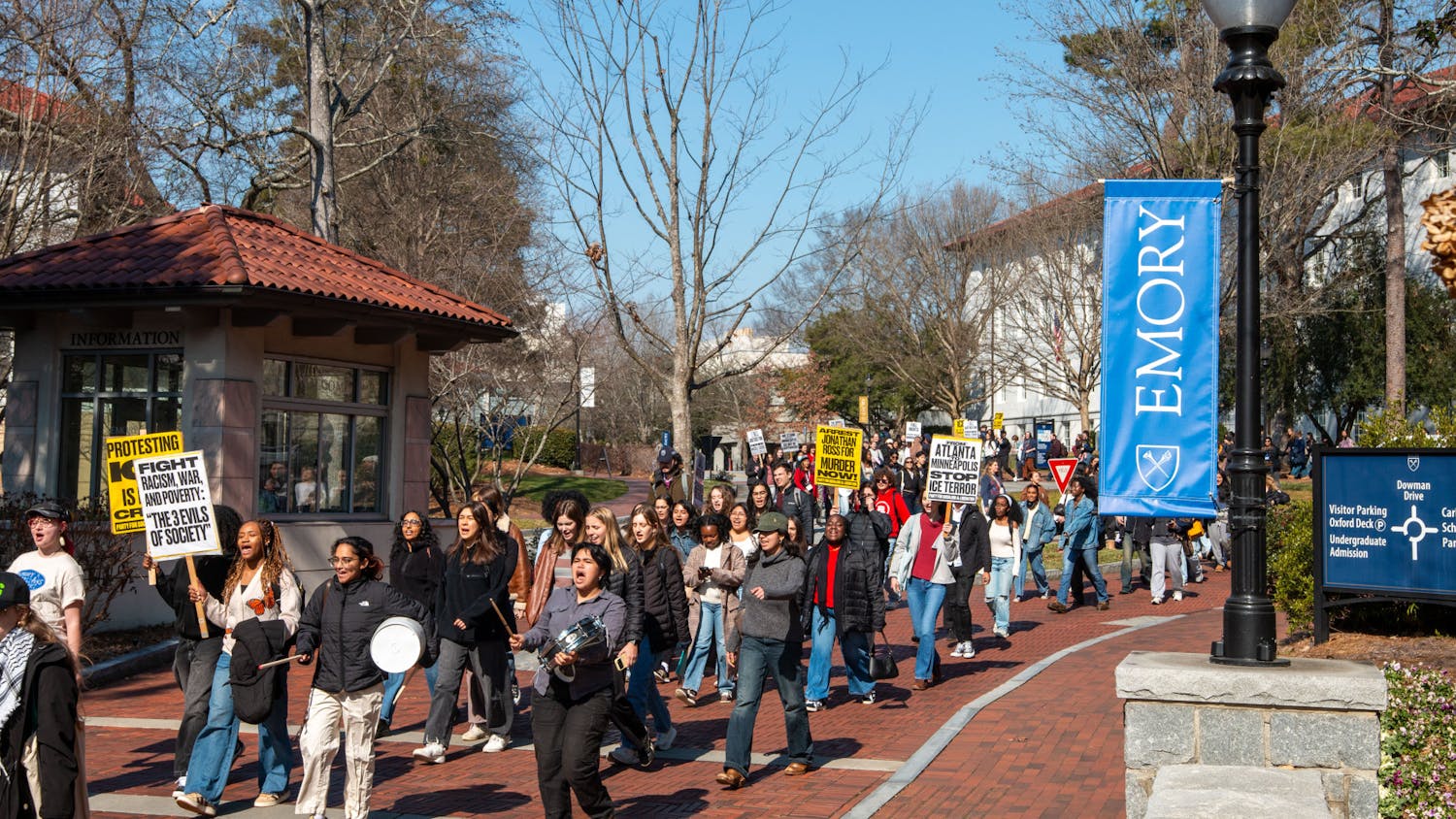Jimmy Carter, the 39th president of the United States and a University Distinguished Professor at Emory University, celebrates his 99th birthday today. Born on Oct. 1, 1924, Carter is extending his record as the longest-living U.S. president. The former Georgia state senator and governor also has lasting ties to Emory, with the institution continuing to honor the former president at the University’s annual Carter Town Hall. The Emory Wheel compiled nine key stories from our past coverage to honor Carter.
Sept. 25, 1979: Emory hosts presidential groundbreaking visit
Carter made his first presidential visit to campus on Aug. 30, 1979 for Cannon Chapel’s groundbreaking ceremony, pulling in thousands of attendees. The president was also awarded with a degree of Doctor of Laws for his shared commitment to “excellence in the arts and sciences and the profession and its devotion to the gifts of the spirit.”
Before the groundbreaking event, Carter attended a luncheon with 700 Emory guests in Cox Hall. The University dining staff spent three days preparing for his arrival with extensive testing, sampling and interrogation by the Federal Food and Drug officials.

Helen Jenkins, the director of Cox Hall Food at the time, told the Wheel after Carter’s visit that they served their typical menu for the event, including offerings like “Emory Coca-Cola Salad” and “Emory Crumb Bars.”
In his address, Carter told spectators that he was “honored” that Emory would invite him to the dedication of a church, which he considered a “special occasion.”
"In breaking ground for the William Cannon Chapel and Religious Center, we honor the things in life that are most precious — things that cannot be seen or measured — honesty, integrity, the strength of conscience, love for God, service to others, humility, wisdom,” Carter said.
April 27, 1982: Carter to become Emory professor
Then-University President James Laney announced on April 21, 1982 that Carter accepted a role as a university distinguished professor. Carter’s new professorship, which began on Sept. 1 of that year, came hand-in-hand with the development of a center for the study of public policy in the Carter Library complex.
"We are convinced that Mr. Carter's association with Emory will make possible the development here of a remarkable institute for the study of public policy,” Laney said.

Carter’s lectures and seminars reached both undergraduate and graduate students, as well as faculty and visiting fellows. He was available to students directly on a limited basis and noted that, as a former president, he had “a unique experience on American history.”
The former president taught his first class — a political science course entitled “National Politics/United States” — on Sept. 16, 1982, spending 90 minutes answering students’ questions about his time in office and events that transpired after his term. Debbie Mancoll, a student in the class, called Carter’s lesson “the single most learning experience in [her] college career” in an interview with the Wheel at the time. Another student, Stacy Parker, said she enjoyed the event “tremendously” and noted that Carter was “very candid.”
Oct. 8, 1982: Carter discusses policy center plans, Mideast
Emory hosted the first annual Carter Town Hall on Oct. 6, 1982, sparking a tradition that continues today. He answered students’ questions lottery-style, largely focusing on the development and impact of Emory’s foreign policy center. He said he hoped the center would be the world’s only space for international leaders and negotiators to resolve crises or disputes.
"To be frank with you, the status of Emory will be drastically changed by my presence," Carter said to the crowd. "It is very rare, almost unheard of for a former president to go to a college of any size to teach. As the character of the University changes, it will be up to you to determine what the university will be."

Carter also spoke on the prospect of peace in the Middle East, saying Israel must withdraw from the West Bank and Gaza, and what he believed to be a deteriorating relationship between the United States and China.
March 23, 1993: Carter, Jackson launch immunization initiative
Carter, alongside pop-rock icon Michael Jackson and The Atlanta Project officials launched Immunization/Children’s Health Initiative as part of The Atlanta Project, a community-building initiative to help revitalize areas of Atlanta, specifically focusing on children’s health and access to healthcare. Carter and Jackson co-chaired the Heal Our Children/Heal the World program.
“We hope this will be the most comprehensive immunization project ever attempted in this country,” Carter told the Wheel. “By enlisting thousands of volunteers to go door-to-door, we will attempt to identify every child under the age of five who needs to be immunized in the Atlanta Project area.”
Sept. 6, 1994: University merges with Carter Center, strengthens affiliation
The Carter Center officially merged with the University on Sept. 1, 1994 after five years of discussion as a permanent, independently-governed sector of Emory. A new Board of Trustees was established as part of the new partnership. The Carter Center retained ownership of its assets and liabilities, but the Emory Board of Trustees was given the power to approve the center’s annual budgets.
Merging Emory and The Carter Center strengthened the institutions’ relationship to ensure a continued commitment as both Carter and his wife, former First Lady Rosalynn Carter, reduced their involvement, according to Billy E. Frye, who was the provost and vice president for academic affairs at the time.
"We recognize that currently a great deal of energy comes from their work, but that in the future, they may wish to scale back their activity,” Frye said. “The whole center provides a wonderful avenue for addressing global problems and is a remarkable laboratory for research.”
Oct. 22, 2002: Carter wins Nobel Peace Prize
Carter won the 2002 Nobel Peace Prize on Oct. 11, 2022 for his continued efforts in resolving international conflicts, even after his presidency ended in 1981. He was the second Emory professor to earn the honor, following His Holiness the XIV Dalai Lama’s selection in 1989, who is an Emory Presidential Distinguished Professor.
During his acceptance speech, Carter expressed hope that his win would push people to adopt a broadened view of human rights.
“People everywhere share the same dream of a caring international community that prevents war and oppression," Carter said in his speech. “During the past two decades, as Rosalynn and I traveled around the world for the work of our Center, my concept of human rights has grown to include not only the right to live in peace, but also to adequate health care, shelter, food and to economic opportunity.”
Nov. 23, 2004: Students make pitches to Carter for saving Mali’s failing economy
In response to Carter challenging Emory to help confront economic underdevelopment in Mali in 2004, Associate Teaching Professor of Middle Eastern Studies Sam Cherribi tailored his class content to address real-world issues related to economic development in the country. Students subsequently proposed their solutions to Carter at the end of the course.

Some of the proposals included increasing access to affordable women’s health and education products, while others suggested ways that Mali could produce finished goods from cotton, which they were the largest African producer of in 2004.
“He said he was excited to hear their recommendations,” Associate Director of Public Affairs Deb Hammacher told the Wheel at the time.
April 9, 2015: President applauds Carter Center’s Ebola efforts
Carter discussed the Carter Center’s successful work in Liberia during the 2014 Ebola Crisis in an April 9, 2015 talk on Emory’s Atlanta campus. He started by reflecting on his first visit to Liberia in 1978, marking the first time a U.S. president traveled to Sub-Saharan Africa. The center was already training nurses for a mental health program in Liberia at the time, so the center decided to train them for Ebola treatment as well, Carter told attendees.
Liberians trusted the Carter Center workers, who focused largely on educating locals about diseases, Carter said.

The former president also applauded Emory’s treatment of Ebola patients, which included the care of Kent Brantly, the first Ebola patient in the U.S.
June 5, 2019: Jimmy Carter awarded tenure at Emory
Following Carter’s 37-years-long career teaching at Emory, the Board of Trustees granted the former president tenure on June 3, 2019, extending to Emory College, Oxford College, Candler School of Theology and Rollins School of Public Health. This made Carter Emory’s first tenured professor to win a Nobel Prize or serve as president.
“Across nearly four decades, he has given Emory the full measure of what it means to be a public intellectual and an engaged faculty member,” then-University President Claire Sterk said in a 2019 press release.

Madi Olivier (she/her) (25C) is from Highland Village, Texas, and is majoring in psychology and minoring in rhetoric, writing and information design. Outside of the Wheel, she is involved in psychology research, the Emory Brain Exercise Initiative and the Trevor Project. In her free time, you can find her trying not to fall while bouldering and obsessively listening to Hozier with her cat.







